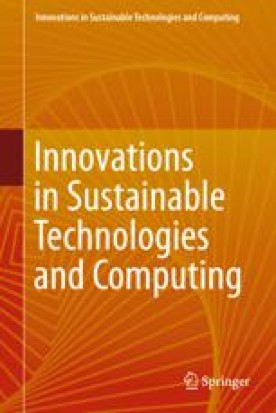Home Editorial Work
MethodsX is multidisciplinary, open access, peer-reviewed journal, which publishes detailed but digestible articles that describe methodological advances. It contributes to open science and improves reproducibility by making methods, protocols, and the associated research more discoverable; opening doors for collaboration, and sparking new lines of inquiry to enhance the research cycle.
Advanced communication and computing technologies to develop intelligent and adaptive systems are usually referred to as smart technologies. Many of the sustainable development goals (e.g., SDG 4, SDG 6, SDG 7, SDG 8, SDG 9, SDG 11) cannot be achieved without developing smart technologies. The aim of the proposed book series, “Studies in Smart Technologies,” is to provide a detailed and latest overview of the latest research findings in the field of smart technologies and allied areas. The series covers studies related to smart cities, IoT, smart sensors, AI, soft computing, and other related areas. The content published in the series will be an important reference to the policymakers, industries, researchers, practitioners, and students in computer science, electrical engineering, information technology, and aerospace engineering.
The series will publish monographs, edited volumes, textbooks and proceedings of important conferences, symposia, and meetings in the field of smart technologies and their applications.
For more details, please visit https://www.springer.com/series/17410
 Innovations in Sustainable Technologies and Computing
Innovations in Sustainable Technologies and Computing
The book series aims to publish research on the analysis and development of technological innovations that consider natural resources and nurture economic and social development. Innovative sustainable technologies are expected to develop sustainable production planning and tools, which reduces environmental and ecological risks drastically.
The series covers research related to innovative solutions in the field of sustainable technology, computing, and communication. Computational methodologies in the field of computer science and engineering, cybersecurity, data science, information systems and software engineering, algorithms for communication, smart transport system, smart city planning, e-waste management system, and other such sustainable technological solutions within the scope of this series.
The series will publish monographs, edited volumes, textbooks and proceedings of important conferences, symposia and meetings in the field of sustainable technology and computing.
For more details, please visit https://www.springer.com/series/1703
 Algorithms for Intelligent Systems
Algorithms for Intelligent Systems
This book series publishes research on the analysis and development of algorithms for intelligent systems with their applications to various real-world problems. It covers research related to autonomous agents, multi-agent systems, behavioral modeling, reinforcement learning, game theory, mechanism design, machine learning, meta-heuristic search, optimization, planning and scheduling, artificial neural networks, evolutionary computation, swarm intelligence, and other algorithms for intelligent systems.
The book series includes recent advancements, modifications, and applications of artificial neural networks, evolutionary computation, swarm intelligence, artificial immune systems, fuzzy systems, autonomous and multi-agent systems, machine learning, and other intelligent systems-related areas. The material will be beneficial for graduate students, post-graduate students as well as researchers who want a broader view of advances in algorithms for intelligent systems. The contents will also be useful to the researchers from other fields who have no knowledge of the power of intelligent systems, e.g. the researchers in the field of bioinformatics, biochemists, mechanical and chemical engineers, economists, musicians, and medical practitioners.
The series publishes monographs, edited volumes, advanced textbooks, and selected proceedings.
 Studies in Autonomic, Data-driven and Industrial Computing
Studies in Autonomic, Data-driven and Industrial Computing
The book series Studies in Autonomic, Data-driven and Industrial Computing (SADIC) aims at bringing together valuable and novel scientific contributions that address new theories and their real-world applications related to autonomic, data-driven, and industrial computing. The area of research covered in the series includes theory and applications of parallel computing, cyber trust and security, grid computing, optical computing, distributed sensor networks, bioinformatics, fuzzy computing, and uncertainty quantification, neurocomputing and deep learning, smart grids, data-driven power engineering, smart home informatics, machine learning, mobile computing, internet of things, privacy-preserving computation, big data analytics, cloud computing, blockchain and edge computing, data-driven green computing, symbolic computing, swarm intelligence and evolutionary computing, intelligent systems for industry 4.0, as well as other pertinent methods for autonomic, data-driven, and industrial computing.
The series will publish monographs, edited volumes, textbooks, and proceedings of important conferences, symposia, and meetings in the field of autonomic, data-driven, and industrial computing.